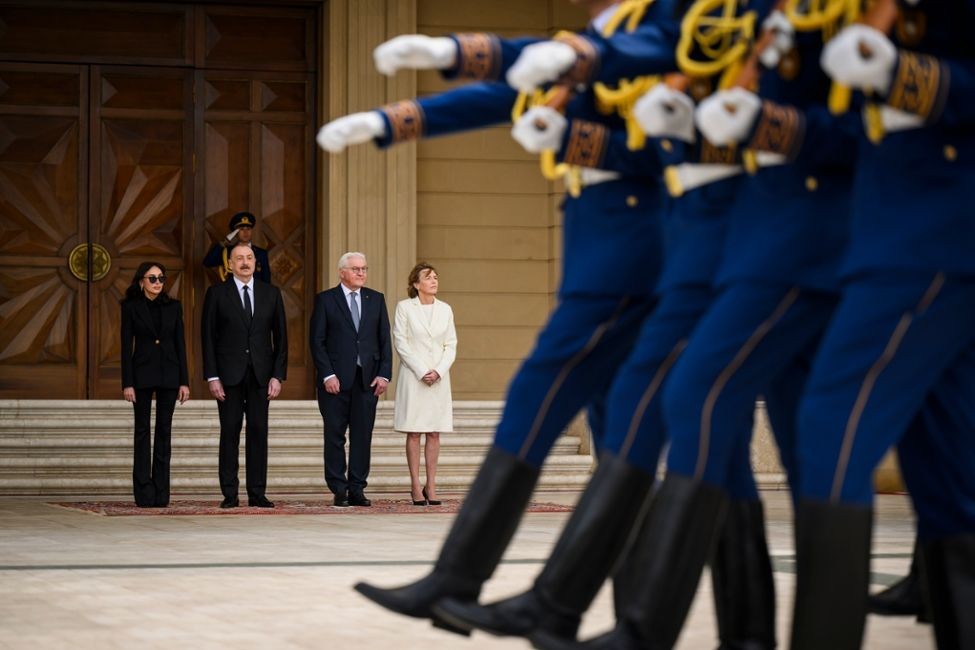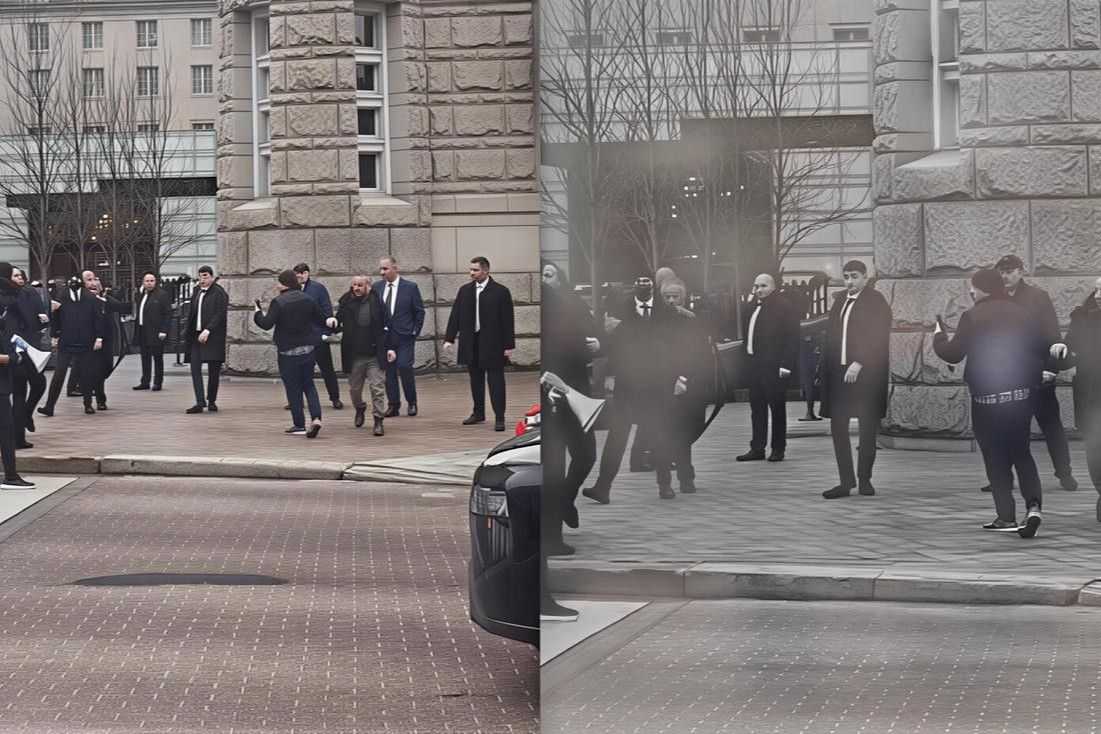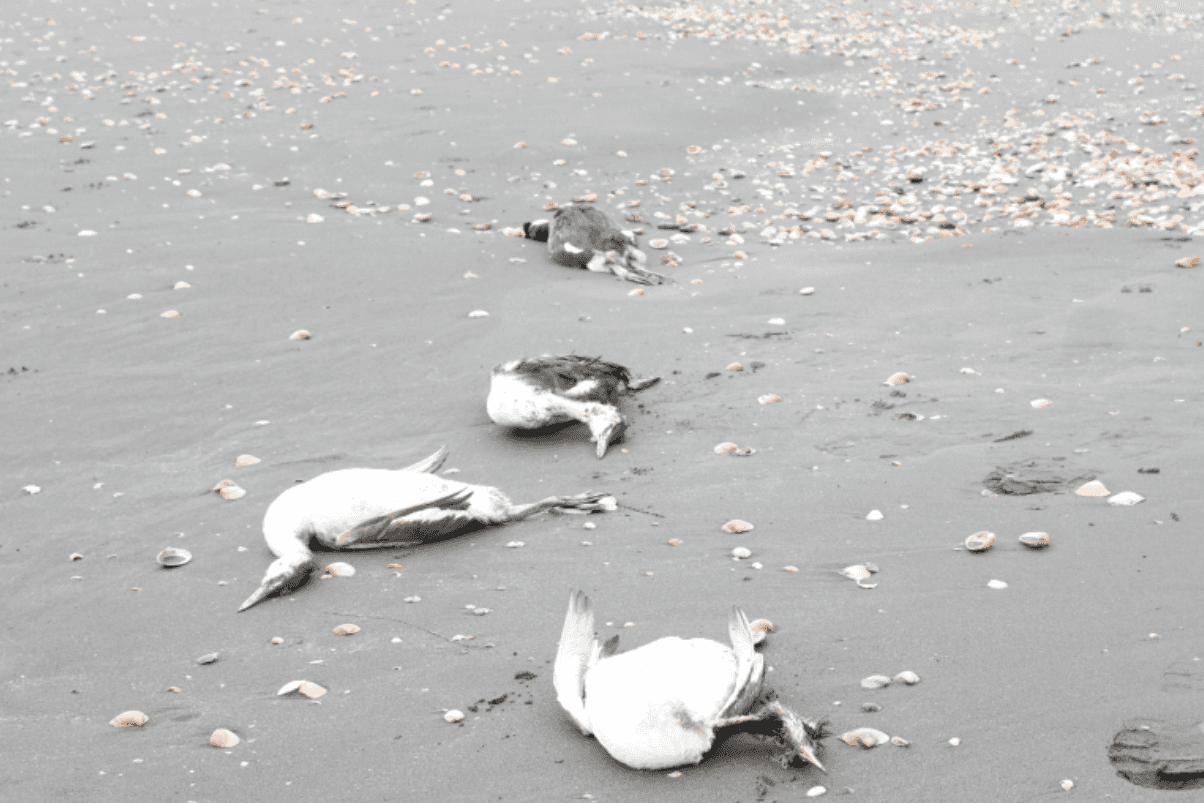
German President Frank-Walter Steinmeier arrived in Baku on Tuesday evening, capping off his several-day trip to the South Caucasus that also saw him visit Armenia.
While the visit appeared to be on the verge of being overshadowed by some diplomatic missteps, Steinmeier said at a press conference with Azerbaijani President Ilham Aliyev that ‘we know and recognise that [Nagorno-Karabakh] is part of Azerbaijan’.
‘We have expressed our position in accordance with international law’, Steinmeier said.
The statement was highlighted in the Azerbaijani pro-government media outlet APA, alongside the caption ‘BREAKING’.
Nonetheless, German recognition that Nagorno-Karabakh is sovereign Azerbaijani territory is not a new development — Berlin never recognised the previous Nagorno-Karabakh government that existed until the beginning of 2024.
Steinmeier also praised the progress made towards the signing of a peace treaty between Armenia and Azerbaijan, the terms of which were finally agreed upon, at least in theory, in March.
He also acknowledged the process will be difficult.
‘There is no single recipe for peace that can be applied everywhere [...] efforts must be made and work must be done to ensure peaceful coexistence in the South Caucasus as well’.
‘Even after the agreement is signed, it will take many years to turn it into reality. A trustworthy reconciliation will require a long time. The first step is the signing of the peace agreement. I believe it will happen’, Steinmeier said.
In turn, Aliyev also spoke about the peace process, repeating that ‘the text of the peace treaty consisting of 17 paragraphs has been fully agreed upon. Azerbaijan is not putting forward any additional conditions here’.
Aliyev emphasised that there are two remaining issues — the dissolution of the OSCE Minsk Group and changing of the Armenian Constitution, which he says contains ‘an open territorial claim against us’.
‘Once these two conditions are met, there will be no obstacles to signing the peace treaty. As they say, the ball is in Armenia’s court’, Aliyev stressed.
In addition to talks and a joint press conference with Aliyev, Steinmeier was also scheduled to attend various cultural events, as well as a visit earlier on Wednesday morning to Baku’s Martyr’s Alley, which commemorates Azerbaijani civilians killed by the Red Army during the Black January events of 1990, as well as Azerbaijani soldiers who were killed during the First Nagorno-Karabakh War.
There has yet to be an official statement from Steinmeier on his trip to Azerbaijan, but it will likely be added to the website shortly.
The first leg of Steinmeier’s trip to the South Caucasus, a two-day stop in Armenia, landed him in hot water with Baku after the president’s official Instagram page shared a post containing an image of the flag used by the authorities in Nagorno-Karabakh before Azerbaijan took control of the region in 2023.
Although the post was shortly deleted, it outraged Baku, which responded by summoning Germany’s ambassador to Azerbaijan and demanding an official apology.
Later, Germany’s presidential office said the post had been a ‘technical mistake and bears no significance with regard to Germany’s well-known position on the territorial integrity of Azerbaijan’.
For ease of reading, we choose not to use qualifiers such as ‘de facto’, ‘unrecognised’, or ‘partially recognised’ when discussing institutions or political positions within Abkhazia, Nagorno-Karabakh, and South Ossetia. This does not imply a position on their status.











